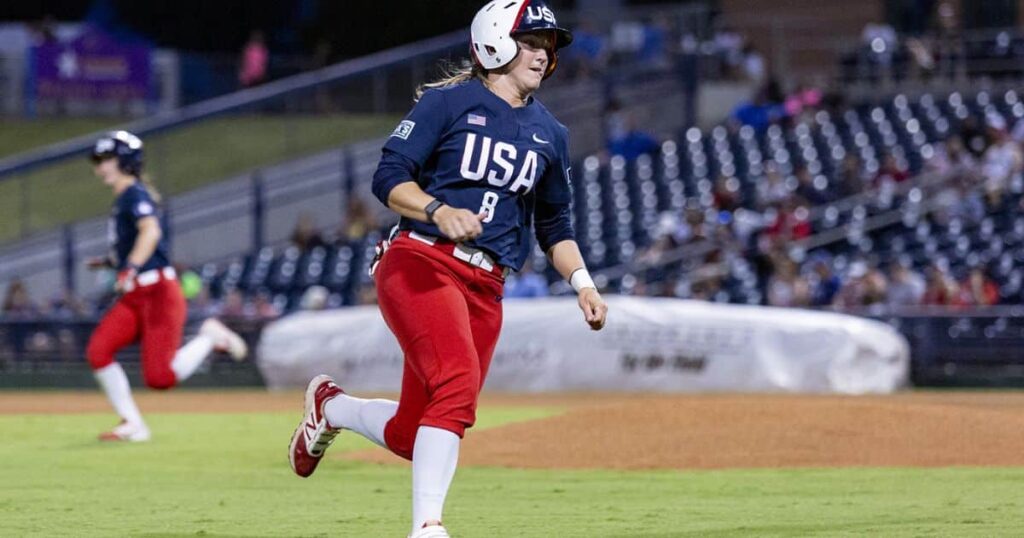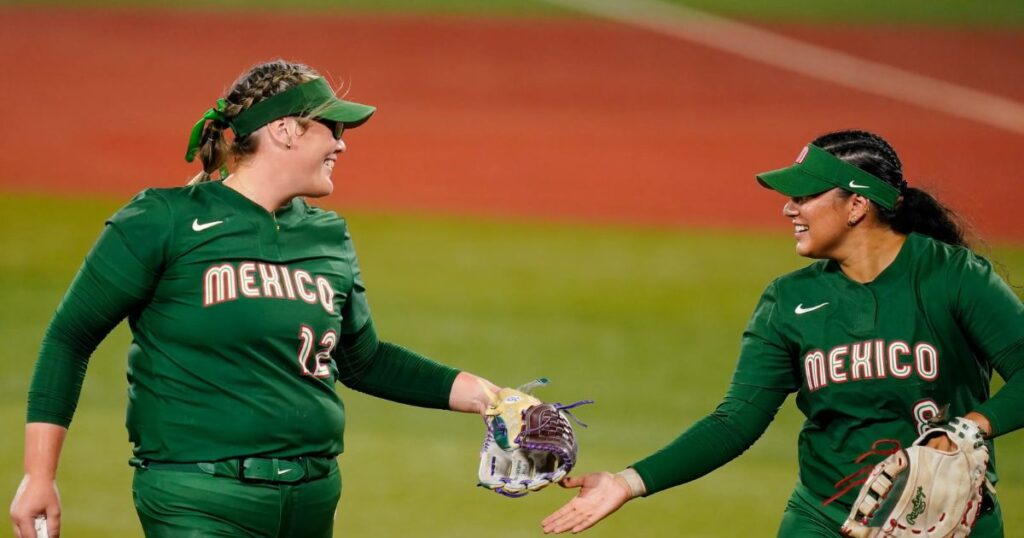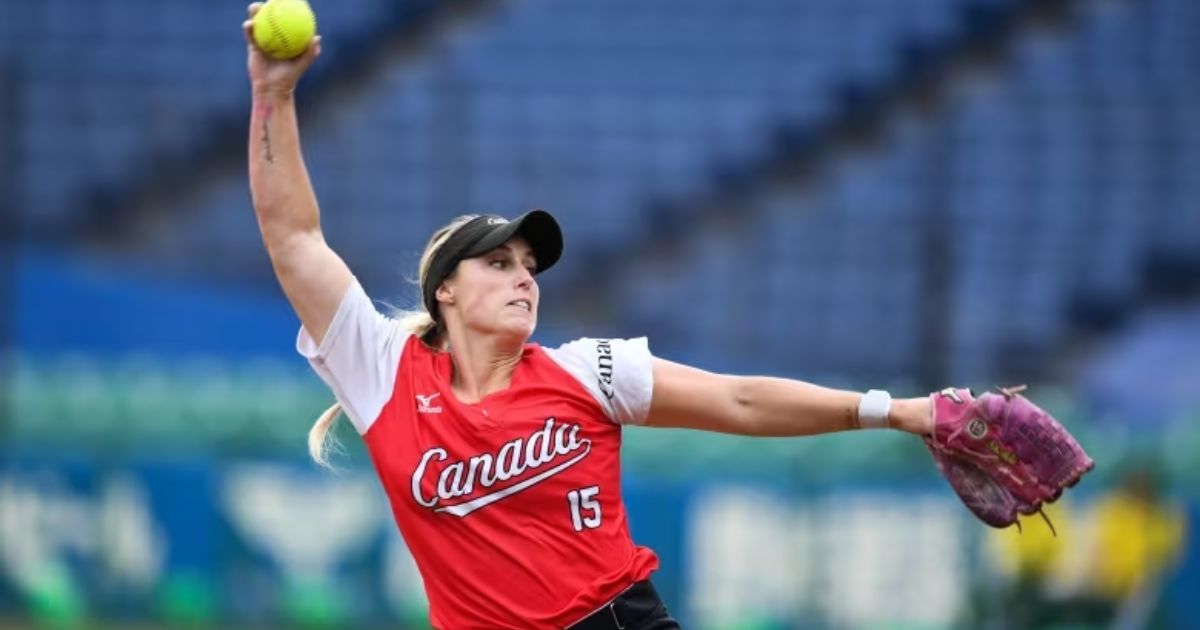In the world of sports, the Olympic Games stand as the pinnacle of athletic competition,. It showcases a diverse array of disciplines that captivate audiences globally. One might wonder why softball, a former Olympic sport, is now absent. Recent editions no longer feature this once-prominent game.
Imagine a world where softball, that graced the Olympic stage, suddenly disappears. Why did this happen? Let’s discuss the interesting story behind the absence of softball from the Olympic games. Softball, a thrilling bat-and-ball game akin to baseball. It captures the hearts of Olympic enthusiasts. HEre we will discuss why and how behind softball’s departure from the grand Olympic arena.
Key Takeaways
- The International Olympic Committee removed softball from the Olympic program in 2005 due to a lack of global participation and declining interest.
- Limited international exposure and cultural differences hindered softball’s growth on a global scale.
- The perspective of IOC officials, who prioritize sports with widespread international following, contributed to softball’s exclusion.
- Host cities have the power to influence the inclusion or exclusion of sports in the Olympic program based on their cultural, economic, and logistical priorities.
The Rise Of Softball In The Olympics

In 1996, softball, a baseball variant, debuted at the Atlanta Summer Olympics. The community celebrated reaching a significant milestone with the inclusion of softball. It provides a platform for female athletes to showcase their prowess on an international stage. Swiftly gaining popularity, the sport enthralls with fast-paced action and athletic brilliance.
The Initial Success
Thrilling softball competitions persisted in subsequent Olympics: Sydney (2000), Athens (2004), Beijing (2008). The sport boosted Olympic gender equality goals, providing women equal high-level competition.
Softball’s Historical Opposition From The IOC To The Olympics
The IOC has excluded softball from the 2024 Summer Olympics in Paris. This decision disappoints many. It sparks disappointment among players and coaches. Despite softball’s long history dating back to 1887, the IOC has been historically hesitant. It is hesitant to recognize its significance in the Olympic Games.
Requests from countries were repeatedly rejected until 1991 when softball became a women-only sport in the Olympics. It includes like Australia, Japan, New Zealand, and the United States. The IOC removed it in 2012, citing its American appeal. Both softball and baseball briefly returned in 2020. However, the IOC dropped them from the 2024 Olympics on February 21, 2019.
Softball’s Removal From Olympics
The removal of softball from the Olympic Games was met with disappointment and controversy. Softball, a sport that has traditionally been dominated by female athletes, was first included in the Summer Olympics in 1996. It quickly gained popularity and became a symbol of empowerment and inclusion for women in sports. However, in 2005, the International Olympic Committee (IOC) decided to remove softball from the program, citing a lack of global participation and interest.
This decision sparked outrage among softball players, fans, and advocates who believed that the sport deserved a place in the Olympic Games. They argued that softball provided opportunities for women to showcase their skills and compete at the highest level, and its removal was a setback for gender equality and the advancement of women in sports. The absence of softball in the Olympic Games continues to be a point of contention and a source of disappointment for those who believe in its importance and value.
Factors Behind Exclusion
Factors contributing to the exclusion of softball from the Olympic Games include low global participation and declining interest, leading to the decision made by the International Olympic Committee. Softball has traditionally been popular in countries like the United States, Japan, and Australia, but it struggled to gain widespread global participation. This lack of worldwide engagement ultimately played a significant role in the sport’s removal from the Olympic program.
Additionally, declining interest in softball among younger generations also contributed to its exclusion. The International Olympic Committee aims to promote sports that have a broad global appeal and can attract a wide range of athletes and spectators. Unfortunately, softball fell short in both these aspects. This lack of global recognition further underscores the reasons behind its absence from the Olympic Games.
1. Lack Of Global Appeal
One major factor cited for the exclusion of softball was its perceived lack of global appeal. Softball struggled for global recognition unlike Olympic sports with widespread participation. Popularity concentrated in Americas and Asia raised concerns about international inclusivity.
2. Dominance Of Specific Nations
Another issue that arose was the dominance of a few nations in softball. The US, Japan, and Australia teams consistently showed high-level proficiency in softball. It leads leading to predictable outcomes in some competitions. Questions arose about softball’s fairness, its competitiveness, and equal opportunities for nations.
3. Venue And Cost Considerations
Softball, being a diamond sport, required specialized facilities for competitions. Building and maintaining such facilities burdened host cities with significant financial challenges. The IOC aimed to simplify the Olympic program, considering logistics and costs.
Lack Of Global Recognition
Due to its lack of global recognition, softball faced challenges in gaining widespread participation and ultimately led to its exclusion from the Olympic Games. Despite being popular in certain regions, softball struggled to establish itself as a universally recognized sport. The lack of global recognition can be attributed to several factors:
- Limited international exposure: Softball is primarily played in North America, with limited participation from other continents. This restricted exposure hindered the sport’s growth on a global scale.
- Cultural differences: Softball’s rules and gameplay may differ significantly from traditional sports in some countries, making it less appealing to potential participants.
- Dominance of baseball: Softball is often overshadowed by its male counterpart, baseball, which enjoys greater popularity and recognition worldwide.
The absence of global recognition hindered softball’s ability to attract a diverse pool of athletes, resulting in its exclusion from the Olympic Games. However, the International Olympic Committee (IOC) officials have their own perspective on this matter, which will be examined in the following section.
IOC Officials’ Perspective

Softball’s exclusion from the Olympic Games has been a subject of interest for IOC officials, who have provided their perspective on the matter. According to IOC officials, the decision to remove softball from the Olympic program was based on several factors. One of the main reasons cited was the lack of global recognition for the sport. IOC officials believe that in order for a sport to be included in the Olympic Games, it should have a widespread international following.
They argue that softball, while popular in certain regions, does not have the same level of participation and fan base as other Olympic sports. Additionally, IOC officials have mentioned the need to continuously evaluate and update the Olympic program to ensure its relevance and appeal to a global audience.
Host Cities’ Influence On Sports
The influence of host cities on the inclusion of sports in the Olympic Games is a significant aspect to consider when analyzing the absence of softball from the current Olympic program. Host cities have the power to shape the Olympic program based on their own cultural, economic, and logistical priorities. Here are three ways in which host cities can influence the inclusion of sports in the Olympics:
- Cultural relevance: Host cities often prioritize sports that are popular and culturally significant in their own country. If softball is not widely played or followed in the host city, it may be overlooked in favor of other sports that have a stronger local following.
- Economic considerations: Host cities must invest significant resources in building infrastructure and venues for the Olympic Games. They may choose to prioritize sports that have existing facilities or can be easily adapted from existing venues, which may not be the case for softball.
- Logistical challenges: Softball requires specific venues and equipment, which may pose logistical challenges for host cities. If the host city does not have suitable facilities or if the cost of building or modifying venues is prohibitively high, softball may be excluded from the Olympic program.
Pursuit Of Olympic Recognition
Host cities play a pivotal role in shaping the Olympic program, and the pursuit of Olympic recognition is an important aspect to consider when analyzing the absence of softball from the current Olympic Games. Softball’s exclusion from the program can be attributed to the lack of widespread global participation and interest in the sport. In order to be considered for Olympic inclusion, a sport must demonstrate a significant level of international participation, both in terms of the number of countries involved and the overall popularity of the sport.
While softball is certainly popular in certain regions, such as the United States and Japan, it has struggled to gain widespread appeal on a global scale. This limited international participation has hindered softball’s chances of being included in the Olympic Games, leading to its exclusion from the current program.
Softball’s Perception As A Non-Global Sport
A lack of widespread global participation has led to softball being perceived as a non-global sport. While softball is popular in certain regions, it has struggled to gain a foothold in many parts of the world. Here are three reasons why softball is seen as a non-global sport:
- Limited participation: Softball is primarily played in North America, Central America, and East Asia, with a few European countries also participating. However, many regions, such as Africa and the Middle East, have little to no representation in the sport.
- Lack of infrastructure: Softball requires specific facilities, such as dedicated fields and equipment, which may not be readily available in some countries. This hinders the growth of the sport in those regions.
- Cultural barriers: Softball is often seen as a sport that is more popular among women. In some cultures, there may be societal or cultural barriers that discourage women from participating in sports, including softball.
Despite these challenges, efforts are being made to bring softball back to the Olympic Games and promote its global participation.
Efforts To Bring Softball Back
Efforts have been made to reinstate softball as an Olympic sport. Despite its exclusion from the Olympic Games since 2008, softball enthusiasts and organizations have been actively campaigning for its comeback. The International Softball Federation (ISF) and the World Baseball Softball Confederation (WBSC) have been at the forefront of these efforts, advocating for the sport’s inclusion in future Olympic events.
To illustrate the widespread support for softball’s return, here is a table showcasing some of the key organizations and their initiatives:
| Organization | Initiatives |
|---|---|
| ISF | Promoting grassroots development programs and organizing international tournaments |
| WBSC | Launching social media campaigns and lobbying the International Olympic Committee (IOC) |
| National Softball Federations | Encouraging participation and raising awareness through local events and competitions |
| Athletes | Speaking out in favor of softball’s reinstatement and actively engaging with fans and media |
These collective efforts reflect the desire of the softball community to once again be a part of the Olympic Games, fostering a sense of belonging and global representation for the sport.
Softball’s Popularity Among Fans
Softball’s exclusion from the Olympic Games since 2008 has not diminished its popularity among fans. Despite no longer being an Olympic sport, softball continues to thrive and captivate a dedicated fan base. Here are three reasons why softball remains beloved among its passionate supporters:
- Community: Softball offers a sense of belonging and camaraderie. Fans often join local leagues or teams, creating a tight-knit community of players and supporters who share a common love for the sport. The social aspect of softball fosters friendships and a sense of belonging.
- Excitement: Softball is an action-packed game that keeps fans on the edge of their seats. From powerful home runs to diving catches, the fast pace and unpredictable nature of the sport make it thrilling to watch. Each game is filled with intense moments that leave fans cheering and celebrating.
- Accessibility: Softball is a sport that can be enjoyed by people of all ages and skill levels. Whether playing casually in the backyard or competing at a high level, fans can easily participate and engage with the sport. This accessibility contributes to the sport’s popularity and ensures a diverse and inclusive fan base.
Despite its absence from the Olympic Games, softball’s popularity among fans remains strong. The sense of community, excitement, and accessibility that the sport offers continues to attract and unite fans from all walks of life.
Implications For Softball Athletes

The exclusion of softball from the Olympic Games has significant implications for athletes in the sport. For softball athletes, the Olympics represent the pinnacle of their careers and the ultimate stage to showcase their talent and skills. The absence of softball from the Olympics means that these athletes are deprived of the opportunity to compete on a global platform and gain recognition for their hard work and dedication.
Additionally, the exclusion from the Olympics also has financial implications for softball athletes. Olympic participation often attracts sponsorships and endorsements, which can provide crucial financial support for athletes. Without the Olympic exposure, softball athletes may struggle to secure the same level of financial support, which can hinder their training, development, and overall success in the sport. Overall, the exclusion of softball from the Olympic Games has a profound impact on the athletes, affecting their career prospects, recognition, and financial stability.
Softball’s Future In The Olympics
Softball’s potential return to the Olympic Games hinges on securing the support and commitment of key stakeholders involved in the decision-making process. The future of softball in the Olympics remains uncertain, but there are several factors that could influence its comeback:
- Global popularity: Softball is widely played and followed around the world, with a strong presence in countries like the United States, Japan, and Australia. Its global appeal could bolster its case for reinstatement.
- Gender equality: The International Olympic Committee (IOC) has made significant efforts to promote gender equality in recent years. Including softball in the Olympics would help maintain a balance between male and female sports.
- Youth engagement: Softball is a sport that appeals to a younger demographic, making it an ideal addition to the Olympic program. Engaging young athletes and fans is crucial for the long-term success of the Games.
Watching Olympic Softball Games
Viewing Olympic softball games provides a unique opportunity to witness elite-level competition and appreciate the skill and strategy of the sport. As spectators, we are able to immerse ourselves in the excitement and intensity of the games, cheering on our favorite teams and athletes. The Olympic stage showcases the very best softball players from around the world, offering a chance to witness incredible displays of athleticism and teamwork.
Whether it’s the powerful swings of the batters, the lightning-fast throws of the pitchers, or the agile fielding of the players, watching Olympic softball games allows us to marvel at the precision and talent on display. It’s a chance to feel a sense of belonging to a global community of sports enthusiasts, united in our appreciation for the beauty of the game.
Efforts To Reintroduce Softball
1. Joint Bid With Baseball
The group that takes care of softball around the world, the World Baseball Softball Confederation (WBSC), really wants softball to come back to the Olympics. They did something smart by teaming up with baseball, another sport like softball that was also not in the Olympics. Together, they tried to show how both sports are exciting and for everyone.
2. Modified Format And Rules
The people who love softball wanted to make it more fun and fair. They suggested changing how the game is played to make it more exciting and fair for everyone. They listened to what the people in charge of the Olympics wanted and worked hard to make softball better for everyone.
Conclusion
In conclusion, the exclusion of softball from the Olympic Games can be attributed to a lack of global recognition and the influence of host cities on sports selection. Despite its popularity among fans, softball’s future in the Olympics remains uncertain. With its removal, implications for softball athletes are significant, as they lose the opportunity to compete at the highest level. The absence of softball in the Olympics raises questions about the inclusivity and diversity of the Games.
In the end, not having softball in the Olympics is because of different reasons. Some worry if people all around the world like it, some countries are too good at it, and it costs a lot to organize. Even though people miss softball, those in charge are working hard to fix the problems. We don’t know for sure what will happen, but we hope softball can be in the Olympics again.








